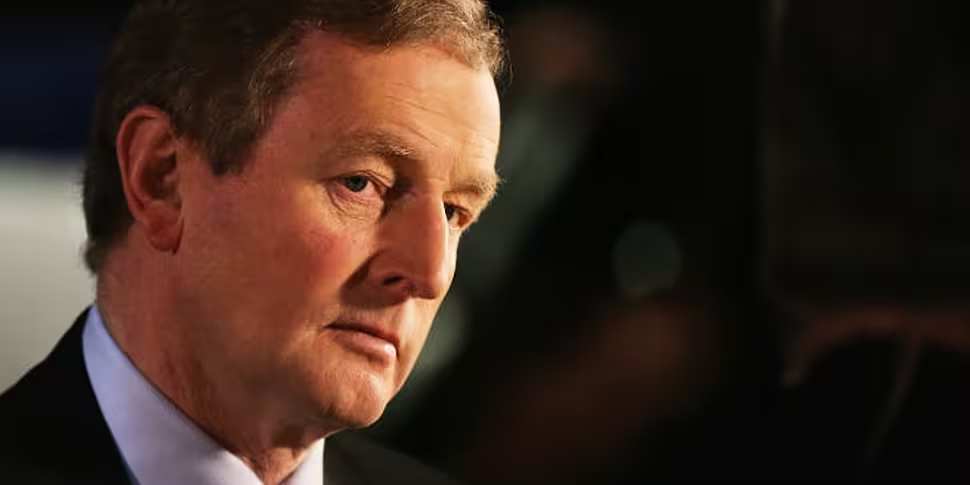An Taoiseach Enda Kenny says he won't be able to stop border checks between the Republic and Northern Ireland returning if the United Kingdom votes to leave the European Union.
Mr Kenny was speaking as he announced plans to visit the UK next week, ahead of the referendum on June 23rd.
He told reporters this afternoon that he can't personally see any way around introducing border checks if a Brexit comes to pass:
"Were that to happen, obviously it means paperwork, it means administration, it means lost time, it means greater inefficiency, it means greater cost.
"It would not be the wish of the Irish government that there would be a restoration of customs and border controls but that would not be in our capacity not to have it.
"I think [there] would be a possibility, a strong possibility, that to could happen."
Mr Kenny will meet British Prime Minister David Cameron next Friday June 17th.
Two former British PMs were in Ulster University's Magee campus in Co Derry yesterday, speaking about the upcoming referendum.
Former political opponents in the 1990s, Tony Blair and John Major were pushing the same message as they issued warnings about the potential consequences of the United Kingdom opting to leave the European Union. The situation in Ireland was addressed, with Tony Blair asserting.
"If the UK were to leave the European Union, then the border with Republic becomes the border of the European Union."
Dismissing suggestions that an open border between the Republic and Northern Ireland could exist, Blair continued:
"In all the cases of communities that require investment and jobs and opportunity, these things will then become even harder.
"If you then retain the common travel area, then it means someone from any part of Europe can come to the South and then come to the North. And then, there are obviously no border checks, within the UK."
Mr Blair also voiced his concerns that a Brexit could damage the relationship between Ireland and Britain in general.
"Of course there are differences that remain but I remember being the first [British] prime minister to go and address the Dáil. I remember working closely with Bertie Ahern to bring about the Good Friday Agreement.
"We did it by working together.
"We came together as two countries, not just as politicians negotiating that agreement, and we did so with the very spirit that I think is the very spirit that should inform our thinking when we come to decide this question on Europe.
"Because, for all its faults, it represents, since my father’s generation, an enormous coming together of people, a belief that in working together we can advance our individual interests in a more profound and more effective way.
"And the very spirit that brought us together in making peace in Northern Ireland is the very spirit that we need to reflect upon as we come to make this decision.
"It is a sizeable decision. It is a decision of immense importance to the whole of the country and I think it is of particular importance to the people of Northern Ireland."
John Major, who preceded Blair as British PM, argued that the United Kingdom itself could fall apart in the event of a 'Leave' vote.
"That's the risk," the former Conservative leader said. "That a British exit from a European Union could reopen the whole question and tear apart the United Kingdom."
Major suggested that it would be "politically irresistible" to send Scotland to the polls again to vote on independence if a situation arose where a majority of Scottish voters backed a 'Leave' decision but the UK left the EU regardless.
"The plain, uncomfortable truth is that the unity of the UK itself is on the ballot paper in two weeks' time. There is a serious risk of a new referendum, not immediately perhaps, but eventually."









